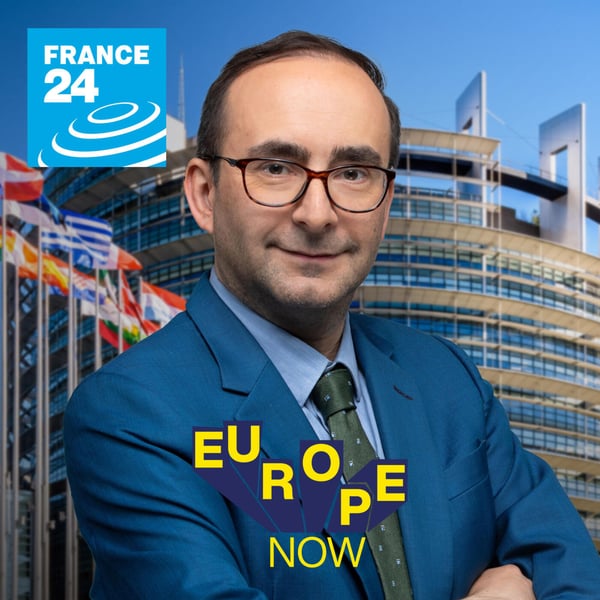Spain's EU presidency overshadowed by political crisis (part 2)
Europe Rendezvous
France Médias Monde
2.2 • 5 Ratings
🗓️ 10 November 2023
⏱️ 17 minutes
🧾️ Download transcript
Summary
It's not often that an EU member state decides to hold a national election just as it takes over the rotating presidency of the European Union. But that's exactly what the Spanish government did on July 23, just three weeks after starting its six-month stint at the helm of the EU. In this second part of the show, we focus on Spain's scientific research and the importance of EU funds to the country.
We take you to Spain's national scientific research council, which is very much aligned with the EU's goals on cutting-edge research and strategic autonomy in key industries.
We also take a closer look at EU cohesion funding and Next Generation EU funds (the post-Covid recovery plan) in Spain, with two of the country’s leading economists.
In our motion design segment, Sophie Samaille reports on how cohesion funds help communities across EU borders.
And FRANCE 24's Luke Brown reports on the Franco-Spanish Treaty of Barcelona and cross-border projects.
Read moreWatch part one of the show
Show presented by Armen Georgian, produced by Johan Bodin, filmed on location by Johan Bodin and Stéphane Bodenne, with Luke Brown. Editor-in-chief: Caroline de Camaret.
Co-funded by the European Union. Views and opinions expressed are however those of the author(s) only and do not necessarily reflect those of the European Union or the DG Regional and Urban Policy. Neither the European Union nor the DG Regional and Urban Policy can be held responsible for them.
Transcript
Click on a timestamp to play from that location
| 0:00.0 | I'm |
| 0:02.0 | M. |
| 0:03.0 | M. |
| 0:04.0 | M. |
| 0:05.0 | M. |
| 0:06.0 | . |
| 0:07.0 | M. Hello and welcome back to Europe now. We're in Spain for the latest in our series about leveling up across the European Union. |
| 0:38.3 | Now, when we say leveling up, people often think about efforts within a country to reduce inequalities. |
| 0:45.3 | But what about border regions? They have different rules, different legislations, |
| 0:50.3 | and yet they are very much part of the EU's cohesion policies. |
| 0:55.0 | Sophie Samai takes a look at that. |
| 0:57.0 | The European Union, cooperation without borders. |
| 1:03.0 | Since the signing of the Maastricht Treaty in 1992 |
| 1:06.0 | and the creation of the Schengen Free Movement area, |
| 1:09.0 | for many European citizens, frontiers and borders |
| 1:11.5 | are a thing of the past. But each European state preciously maintains its language, its |
| 1:16.4 | individuality, its laws, its social policies, within its official borders. Those differences |
| 1:22.7 | are all the more visible along the geographical lines between the member states, the EU's |
| 1:27.3 | internal frontiers, |
| 1:28.4 | where more than 200 million European citizens live, one in three Europeans. As they crisscross |
| 1:34.9 | the block, these trans-frontier zones are at the heart of the EU's interreg program, set up in |
| 1:39.8 | 1990 by the European Commission to boost zones that are spread across two or more countries. |
... |
Please login to see the full transcript.
Disclaimer: The podcast and artwork embedded on this page are from France Médias Monde, and are the property of its owner and not affiliated with or endorsed by Tapesearch.
Generated transcripts are the property of France Médias Monde and are distributed freely under the Fair Use doctrine. Transcripts generated by Tapesearch are not guaranteed to be accurate.
Copyright © Tapesearch 2026.

